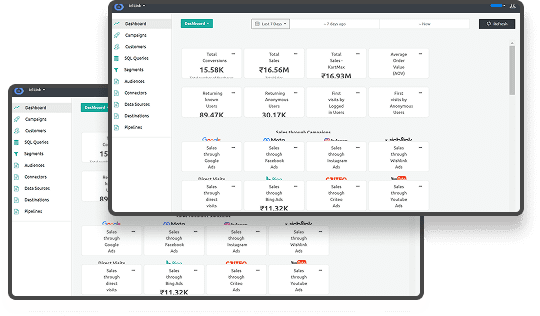In an era where data breaches are increasingly common, protecting personal information is more critical than ever. PIPEDA, Canada’s privacy law, sets clear standards for how businesses must handle personal data. Understanding these regulations is essential to ensure compliance and maintain trust with your customers.
What is PIPEDA?
In the current digital age, safeguarding personal information is essential for businesses operating in Canada. The Personal Information Protection and Electronic Documents Act (PIPEDA) sets the rules for how organizations must handle personal data. If your business collects, uses, or discloses personal information in Canada, compliance with PIPEDA is a legal requirement. This law ensures that businesses respect individuals' privacy while balancing the need for data to support business operations.
PIPEDA applies to private sector businesses across Canada that handle personal data in commercial activities. It regulates how data is collected, stored, and shared, making sure individuals have control over their information. In some provinces, such as Quebec and British Columbia, local privacy laws are considered "substantially similar" to PIPEDA. However, if your business operates across provinces or involves federal works, undertakings, or businesses, PIPEDA remains a critical framework for compliance.
Let’s first understand who must comply with PIPEDA and all the sectors it applies to.
Who Must Comply with PIPEDA?
PIPEDA sets clear guidelines for businesses handling personal data across various sectors. Let’s read about who is required to comply with these regulations to ensure privacy and accountability.
- Private Sector Operations:
- PIPEDA applies to private sector organizations engaged in commercial activities.
- This includes businesses across industries such as e-commerce, advertising, and marketing.
- If your company handles personal data for profit-making purposes, you must comply.
- Federal Works, Undertakings, and Businesses:
- If your business is classified as a federal work, undertaking, or business (FWUB), such as telecommunications or banking, PIPEDA applies.
- Regardless of the province, these businesses must follow PIPEDA guidelines.
- Exemptions Under the Privacy Act and for Non-commercial Purposes:
- Non-commercial activities of organizations, like some activities of charities, are exempt from PIPEDA, although political parties may still be subject to provincial privacy laws.
- Additionally, federal government institutions are covered by the Privacy Act instead of PIPEDA.
- Extraterritorial Application to Non-Canadian Businesses:
- PIPEDA also applies to international businesses that process the personal data of individuals in Canada.
- If your company operates outside Canada but handles Canadian personal data, compliance is necessary.
You must know that understanding who must comply is key to avoiding legal risks.
Next up, the 10 fair information principles that guide PIPEDA compliance.
10 Fair Information Principles
PIPEDA is built on 10 Fair Information Principles that ensure businesses handle personal data responsibly. These principles form the foundation of privacy protection and guide how organizations should manage data. By following these, you can ensure that your data practices comply with PIPEDA.

- Accountability:
You are responsible for protecting personal data in your possession. Assign someone to oversee compliance with PIPEDA.
- Identifying Purposes:
You must clearly explain why you are collecting personal data. Data subjects need to know the purpose of data collection.
- Consent: Express vs. Implied:
Expressed consent is explicitly given by a person, either verbally or in writing, while implied consent is inferred from a person's actions, behavior, or circumstances.
On that note, consent must be obtained before collecting, using, or sharing personal information. Consent can be expressed or implied, depending on the situation.
- Limiting Collection:
You should collect only the personal data necessary for the identified purpose. Avoid collecting unnecessary information.
- Limiting Use, Disclosure, and Retention:
Data must be used only for the purposes stated during collection. You must limit how long you retain it. In other words, personal information is only used, disclosed, and retained for purposes initially identified, unless further consent is obtained or required by law.
- Accuracy:
Ensure that the personal data you collect and store is accurate and up-to-date. This helps maintain the quality of your data.
- Safeguards:
You must protect personal data from unauthorized access, loss, or theft. Implement strong security measures to safeguard it.
Between 2004 and January 2024, internet users in Canada experienced numerous data breaches involving various types of information. Passwords were the most commonly breached data, followed by usernames, with password hashes being the third-most frequently compromised.

Number of data points leaked in data breaches in Canada from 2004 to 2024 YTD, by type of data (in millions).
- Openness:
Your privacy policies must be transparent and easily accessible to data subjects. This promotes trust and compliance with PIPEDA.
- Individual Access:
Individuals have the right to access their personal information and request corrections if needed. You must provide them with this access promptly.
- Challenging Compliance:
You should have procedures in place to address complaints and disputes regarding data handling. Be prepared to demonstrate your compliance with PIPEDA.
Adhering to PIPEDA’s 10 Fair Information Principles ensures businesses handle personal data ethically and transparently. On that note, you can also learn more about how Ingest Labs implements ethical data practices in its work here.
Now that we’ve understood the 10 fair information principles, let’s read about the specific rights individuals hold under PIPEDA next.
What are the Individual Rights under PIPEDA?
Under PIPEDA, individuals are granted several rights to ensure their personal data is handled responsibly. These rights give individuals control over their information and allow them to make informed decisions about its use.
- Right to Be Informed:
Individuals have the right to know why and how their personal data is being collected. You must provide clear information about the purposes and use of their data.
- Right to Access:
Data subjects can request access to their personal information. You are required to provide them with access promptly.
- Right to Correction:
If the personal data is incorrect or incomplete, individuals have the right to request corrections. You must update or amend the data as necessary.
- Right to Withdraw Consent:
Individuals can withdraw their consent at any time. Once consent is withdrawn, you must stop processing their personal information unless another legal basis applies.
- Right to Erasure:
Data subjects may request the deletion of their personal information under certain conditions. This right ensures their data is not kept longer than necessary.
- Complaint Mechanisms:
Individuals can file complaints with the Office of the Privacy Commissioner of Canada (OPC) if they believe their rights under PIPEDA have been violated. You must cooperate with investigations and take appropriate actions to resolve any issues.
As you acknowledge these rights, you are maintaining PIPEDA compliance.
Moving on, let’s explore the organizational requirements that ensure these rights are upheld.
What are the Organizational Requirements under PIPEDA?
Organizations handling personal data under PIPEDA have specific obligations to ensure compliance. These requirements focus on transparency, data accuracy, and secure handling practices to protect individual rights.
- Obtaining Meaningful Consent:
You must obtain informed consent before collecting or using personal data. Individuals should clearly understand what they are agreeing to.
- Fair and Lawful Means of Data Collection:
PIPEDA mandates that you collect personal data through fair and lawful means. You cannot mislead individuals about the purpose or methods of data collection.
- Transparency in Data Handling Policies:
Your privacy policies must be accessible and transparent. This ensures individuals understand how their data is processed and stored.
- Documentation and Data Retention Policies:
You are required to document your data handling practices. Additionally, data should not be retained longer than necessary for the intended purpose.
- Accuracy and Completeness of Data:
Ensure the personal data you collect is accurate and up to date. Regular reviews help maintain the quality and integrity of the data.
We, at Ingest Labs, highlight the importance of regular reviews of your data collection processes in our step-by-step guide to GDPR compliance.
Meeting these organizational requirements under PIPEDA is crucial for maintaining compliance.
That’s not it. Now let’s get a sense of the mandatory data breach notification requirements to protect individuals in case of a security incident.
Ensuring Compliance: Understanding Your Data Breach Notification Requirements:
Under PIPEDA, businesses must follow strict data breach notification requirements to protect individuals’ personal information. When a breach occurs, timely and transparent communication is essential to minimize harm and maintain compliance.

- Mandatory Breach Reporting Requirements to OPC:
You must report any data breach that poses a real risk of significant harm. The report must be made to the Office of the Privacy Commissioner of Canada (OPC) as soon as possible. This helps authorities monitor and assess the situation.
- Notifying Affected Individuals:
If a breach results in a risk to individuals, you must notify them promptly. The notification should include details about the breach, its impact, and steps they can take to protect themselves.
- Harm and Breach Assessment:
Significant harm can include financial loss, identity theft, or damage to reputation. When assessing a breach, you should consider both the sensitivity of the data and the likelihood of misuse.
Meeting these notification requirements under PIPEDA is critical to safeguarding personal data and maintaining trust.
After understanding the requirements for effective breach notification, the next step is to learn how to establish a strong breach response process to handle those incidents effectively.
Establishing a proper Breach Response Process:
A well-structured breach response process is critical for managing data security incidents effectively. Under PIPEDA, your business must respond quickly and efficiently to protect affected individuals and ensure compliance.
Bruna Riffel from NTT Data says in her LinkedIn Post,
“As a company, you should inform customers about the ways available for addressing concerns or seeking further information regarding the handling of their personal information.”

- Breach Assessment and Investigation:
Start by assessing the scope and impact of the breach. Identify what personal data has been compromised and the potential risks to individuals. Investigate the cause of the breach to prevent future incidents.
Learn more about how to respond to data breaches in our detailed guide.
- Documenting Actions Taken:
Keep detailed records of every step taken during the breach response. Documenting actions ensures transparency and helps you demonstrate PIPEDA compliance to regulatory bodies if needed.
- Continuous Improvement of Breach Response Process:
After handling the breach, review the effectiveness of your response. Use the lessons learned to improve your breach response process, ensuring your business is better prepared for future incidents.
Ingest Labs offers solutions for businesses to comply with PIPEDA in under 8 hours. You can ensure consent-driven data collection and a strong data governance architecture is enabled in order to future-proof your business not just from privacy compliance perspective, but also from technology restrictions enforced by browsers and operating systems.
To end things, let’s wrap up with a summary of your compliance obligations and the importance of ongoing monitoring.
Conclusion
PIPEDA compliance is essential for protecting personal data and ensuring transparency in business operations. From individual rights to breach response protocols, understanding your obligations helps build trust with your customers and avoid penalties. Continuous monitoring and adapting to legislative changes are key to maintaining compliance.
Ingest Labs offers a range of solutions that streamline PIPEDA compliance. Our tools simplify data tracking, ensure secure handling, and help your business stay compliant with evolving data privacy regulations. Ready to safeguard your data practices? Contact Ingest Labs today to see how we can support your compliance efforts.






